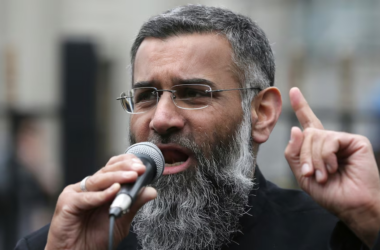US President Joe Biden has expressed cautious optimism that Iran will refrain from retaliatory actions despite its threats following the assassination of Hamas leader Ismail Haniyeh. This hope comes as fears increase that Israel’s ongoing conflict with Palestinian militants in Gaza could ignite a broader regional war.
Tensions in the Middle East have sharply escalated since Haniyeh was killed in Tehran on Wednesday. This incident occurred just a day after an Israeli strike in Beirut resulted in the death of Fuad Shukr, a senior military commander of Hezbollah, a Lebanese group supported by Iran and allied with Hamas.
In the wake of Haniyeh’s assassination, Iran and Hamas have publicly blamed Israel and vowed retaliation. Hezbollah has also pledged revenge, exacerbating concerns about a wider conflict. Despite these threats, Israel has neither confirmed nor denied involvement in the killing.
Asked about the possibility of Iranian restraint, Biden responded, “I hope so. I don’t know,” reflecting uncertainty amid rising regional volatility.
To bolster its defenses against potential threats, the Pentagon announced it would send additional fighter jets and Navy warships to the region. This move underscores the growing international concern over the escalating conflict.
Haniyeh’s assassination is part of a troubling pattern of targeted killings of senior Hamas figures as the war in Gaza approaches its 11th month. This latest development has intensified worries that the Gaza conflict may spread into a larger Middle Eastern war.
In response to the assassination, Hamas has initiated a “broad consultation process” to select a new leader. Haniyeh was a key figure in the group’s international diplomacy efforts.
Amid the turmoil, diplomatic efforts continue, with the US, France, Britain, Italy, and Egypt engaging in talks to prevent further escalation. The US has advised its citizens to leave Lebanon immediately, while the British government has urged its nationals to “leave now.” Canada has also warned against all travel to Israel due to the heightened risk.
The violence in the Palestinian territories persists. On Saturday, an Israeli airstrike on a school sheltering displaced persons in Gaza City resulted in the deaths of at least 15 Palestinians. Earlier, two airstrikes in the occupied West Bank killed nine individuals, including a local Hamas commander.
According to Gaza health officials, at least 39,550 Palestinians have been killed in the ongoing Israeli military campaign in Gaza, which was initiated in response to a Hamas-led attack on southern Israel on October 7, resulting in 1,200 deaths and 250 abductions.
Efforts to resume ceasefire negotiations saw a brief visit by a high-level Israeli delegation to Cairo on Saturday, but chances for a breakthrough appear slim in light of recent events.
Israeli Prime Minister Benjamin Netanyahu has claimed that Israel has recently dealt severe blows to Iran’s proxies, including Hamas and Hezbollah, but has not confirmed its role in Haniyeh’s assassination.








